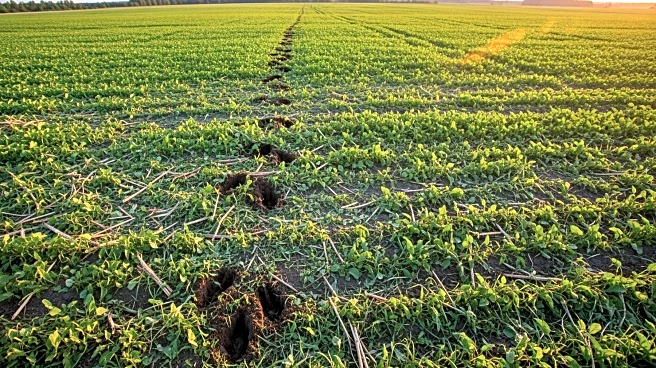What's Happening?
Wild boars are causing significant damage to Brazilian agriculture, with estimated losses reaching R$1 billion. These invasive animals, originally introduced for commercial breeding, have multiplied rapidly
and are now present in over 20 states. Their destructive behavior includes uprooting crops, damaging infrastructure, and transmitting diseases to livestock and humans. The situation has become a major concern for farmers, who are struggling to manage the impact on their livelihoods. Despite efforts to control the population through culling, the lack of coordinated policies and efficient management has hindered progress. The threat posed by wild boars is not only economic but also environmental, as they disrupt ecosystems and contribute to biodiversity loss.
Why It's Important?
The unchecked growth of wild boar populations in Brazil represents a significant threat to the country's agricultural sector, which is a cornerstone of its economy. The financial losses from crop destruction and disease transmission could have long-term implications for food security and economic stability. Additionally, the environmental impact of wild boars, including soil erosion and biodiversity loss, poses challenges for sustainable land management. The situation highlights the need for urgent national policies to address invasive species and support affected farmers. Without effective intervention, the problem is likely to escalate, further endangering Brazil's agricultural productivity and ecological health.











